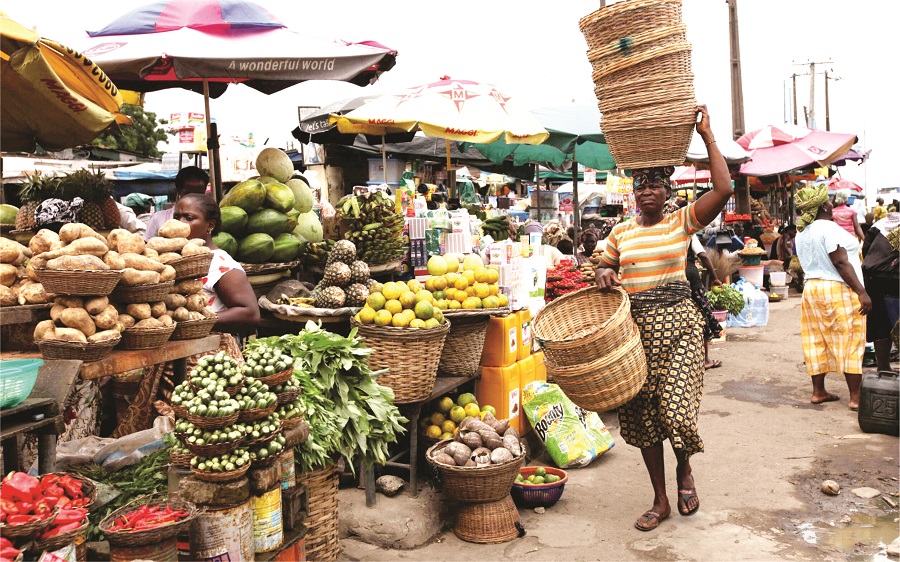Nigeria is one of the countries in the world endowed with very fertile soil. That is why several food and cash crops are cultivated in the country. Some few decades ago, agriculture was in fact the mainstay of the nation’s economy.
That was before the discovery of crude oil – the black gold. In recent years, agricultural activities and the sector itself, have become a shadow of themselves. Lack of government attention and the activities of criminal elements have contributed to making farming and livestock production everything, but fascinating.
Many people, especially our youths, no longer take to farming or any kind of agro-business, which they consider time-wasting and a strenuous endeavour.
But it seems that is not even the worst scenario. Looming food insecurity in the country is. Everyone knows the danger inadequate food supply poses to the Nigerian populace and requires an emergency response.
- States to share palliative using own register – Economic council
- Put grievances aside, Runsewe appeals to Nigerians
The renewed onslaught by bandits and insurgents across the country, has prompted strident reminders to the federal and state governments to take effective measures to prevent further food shortages.
But thank God, President Bola Tinubu has already declared a state of emergency on food insecurity to tackle an impending crisis that will affect the nutritional health of many citizens.
Presidential spokesman, Dele Alake, in a statement, said some of the government’s steps as part of the state of emergency would be in the short, medium and long term. “In the immediate term, we intend to deploy some savings from the fuel subsidy removal into the agricultural sector, focusing on revamping the agricultural sector,” he said.
The president also directed that, “all matters pertaining to food and water availability and affordability, as essential livelihood items, be included within the purview of the National Security Council”. This singular action by Tinubu shows how worried he is about Nigeria’s food sector, which is the livewire of the citizens’ good health and wellbeing.
About two months ago, specifically in May, the United Nations World Food Programme raised the alarm that 24.8 million Nigerians currently suffer from acute hunger, affecting 26 states and the Federal Capital Territory. The UN programme cited the prolonged armed conflict in the North East as a major driver of mass hunger and malnutrition, with millions facing the risk of famine and in dire need of life-saving assistance.
In a similar vein, the United Nations Children’s Fund, UNICEF, disclosed that the number of Nigerians at risk of hunger rose by five million, last year.
Insecurity is one thing that has been hampering Nigeria’s food production, in recent years. Across the country, farmers are being attacked by murderous bandits, insurgents and kidnappers.
The Famine Early Warning Systems Network has already identified the conflicts in the North East and North West as major driver of food insecurity. Last December, over 100 farmers were abducted within three weeks across 14 communities in Niger State. The Benue State Government, not too long ago, also disclosed that more than 1.5 million residents of the state, mostly farmers, were displaced.
If the ugly situation must be arrested, the Nigerian government must be alive to its responsibility of providing security to human lives and property. It should put in place an efficient mechanism, which ensures that the state of emergency it has declared on food insecurity, achieves its intended goal.
Also, I agree with this recommendation of an expert on how to tackle Nigeria’s food crisis, which reads: “The federal and state governments should tackle the infrastructure deficits and improve the transportation networks. States need to partner with the private sector to radically improve rural infrastructure and attract investment in agriculture, SMEs, mining and power.
“They should invest in food preservation facilities, equipment and farming support services and inputs. States should motivate, equip and arm local and regional security agencies to effectively combat insecurity. Tinubu should overhaul the federal security agencies, set performance targets, and insist on results to make Nigeria safe for farming, travel, and other productive activities.”
Now is the time to act. Everything must be done to avert this national food scarcity dilemma. The fuel subsidy removal pangs are already dealing with Nigerians. The federal government, in particular, must not allow nutritious meals to become something of a luxury for teeming citizens. It should do all within its capacity to guarantee abundant food supply in the country.
Gift Moses is a 300-level student of Nasarawa State University, and an intern with PRNigeria, Abuja

 Join Daily Trust WhatsApp Community For Quick Access To News and Happenings Around You.
Join Daily Trust WhatsApp Community For Quick Access To News and Happenings Around You.


